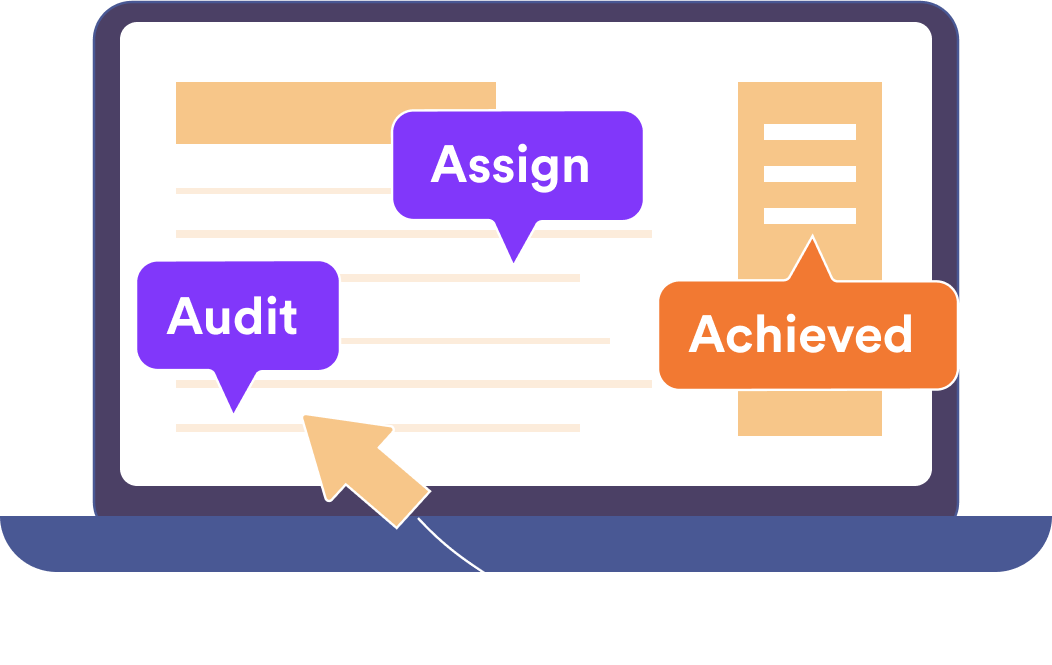Our customers have been hired by*:*Foot Note

Resume Tense
Writing and formatting your resume correctly is extremely important while applying for a new job. One large part of correct formatting is using the right tense. That said, many people are unsure when to use present tense and when to use past tense on a resume. If you’re uncertain of what tense to use on your resume, here are some tips to help you get started.
Build my resumeWhat Tense Should You Use on Your Resume?
While you can use both past and present tense, they need to be used correctly on your resume. For example, when writing about a past job, use the past tense. If you’re talking about past positions you’ve held over the years, use past tense verbs to describe events that have already happened. For example: “Oversaw team of 15 employees.”
On the other hand, if you’re listing a current job that you have now, use the present tense. For example: “Creates quarterly financial reports.” Present tense verbs describe ongoing actions, and this allows you to write about your current job responsibilities on your resume. But can you mix both past and present tense statements on your resume?
Can You Mix Past and Present Tense?
Some situations may have you questioning what tense to use on your resume. Is it okay to mix past and present tense?
Generally, when talking about a specific job, you should avoid mixing past and present action verbs on your resume. For example, if you’re talking about one job, you wouldn’t want to put “Managed over 100 employees” in one sentence and “Conducts daily meetings” in another.
Overall, since your resume primarily focuses on past job positions, you’ll typically use past tense. However, when talking about a current position, you should use the present tense to list responsibilities and accomplishments.
Build my resumeImportance of Using Correct Grammar on Your Resume
Using the proper resume tense indicates your grammar skills. Using proper grammar is crucial on your resume since mistakes stick out easily. Using correct grammar helps emphasize your abilities and skills to recruiters and hiring managers.
Additionally, basic knowledge of grammar and punctuation shows your attention to detail and shows hiring managers that you’ve put time and effort into your resume. Poor grammar on a resume can indicate a lack of excitement and passion for the position.
Finally, correct grammar is easier for others to read and understand. So when potential employers look at your resume, they’ll have an easier time reading through your skills, experience and qualifications.
Examples of Present Tense Resume Verbs
When you’re listing skills on your resume, you’re likely using action verbs to talk about your job duties, responsibilities and skills. Typically, you’ll use bullet points to list this information throughout the skills and work history sections of your resume.
That said, if you’re not sure how to take a skill from the job description and further expand on it, here are some examples of present tense verbs you may use to list your current responsibilities.
When you’re talking about management skills, you may include words like:
- Analyze
- Assign
- Develop
Next, if you’re listing organizational skills, you’ll want to add verbs such as:
- Arrange
- Compile
- Implement
Some action verbs to put along with your technical skills include:
- Assemble
- Operate
- Computer
Finally, when it comes to financial skills, you may consider adding verbs such as:
- Audit
- Balance
- Budget
No matter what relevant skills you have, the ultimate goal is to list them effectively on your resume. If you’re listing past jobs on your resume or cover letter, here are some verbs you can use to describe your achievements.
Build my resumeExamples of Past Verb Tense for Your Resume
Ultimately, most of your resume will likely consist of past tense verbs that describe your job experience and skills. If you’re listing past accomplishments, skills or certifications you’ve obtained from past positions, you may use verbs such as:
- Achieved
- Exceeded
- Established
- Founded
- Improved
- Developed
- Trained
- Performed
- Conveyed
When you’re thinking about listing past skills on your resume, try to use some of these past tense verbs. Frequently, people use the same verbs repeatedly on a resume. Try expanding your vocabulary and listing some unique action verbs that accurately portray your past responsibilities.
FAQ: Resume Tense
Have questions? We’re here to help.
What tense should you use for a cover letter?
Your cover letter is similar to a resume in the sense that you’ll want to use the same tense format. Include present tense statements for your current employment experience and past tense statements for previous jobs.
Does a resume have to be grammatically correct?
Yes, your resume should be grammatically correct before submitting it to a hiring manager or future employer. After all, your chances of an interview are higher if you use proper grammar on your resume.
Additionally, hiring managers and recruiters will notice grammatical errors, which may cause them to turn your resume away. Your resume should be free of mistakes, formatted correctly, and contain information relevant to the job you’re applying for.
How can you eliminate grammar mistakes on your resume?
Job seekers can eliminate grammar mistakes on a resume by having someone look over it. Before you send it over to a hiring manager, have someone proofread it first. Then fix any grammatical errors or formatting mistakes so you can feel confident when you submit it.
Couldn't find the answer you're looking for?






